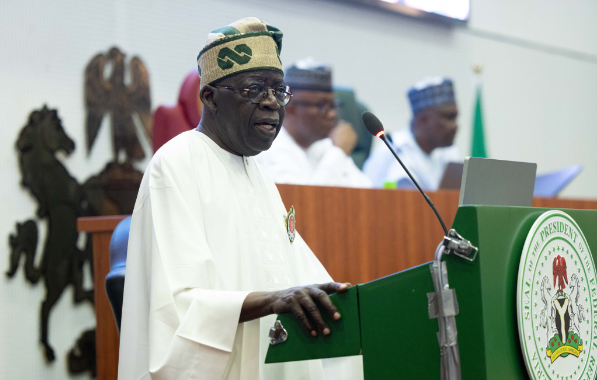The tenure of the Bola Tinubu-led administration, which kicked off energetically post-inauguration on May 29, 2023, has been marked by a series of assertive economic policies.
President Tinubu has demonstrated unwavering determination throughout the year, signaling a departure from conventional economic decision-making. This article delves into some of the economic policies enacted by the administration in 2023 and their implications for the holiday season, as explored by Infostride News.
**1. 50% Discount on Road Travel and Free Train Rides:**

Despite the challenges posed by a soaring inflation rate and the removal of fuel subsidies, President Bola Tinubu took a noteworthy step to alleviate the burden on Nigerians during the holiday season. On December 21, 2023, he announced a 50% reduction in public transport fares for holiday travelers, a move aimed at facilitating affordable travel. This discount, applicable until January 4, 2024, is complemented by the President’s approval of free train services throughout the country during the holiday period.
The impacts of these measures are multifaceted. Firstly, holiday travelers will experience a welcome reduction in transportation expenses, fostering a more affordable Christmas for those visiting family and friends across the nation. Moreover, the slash in transport costs is anticipated to ease logistics expenses, contributing to a potential reduction in the prices of goods being transported within the country.
However, it is crucial to note that while these measures provide temporary relief, they do not address the root causes of the rising cost of living, particularly inflation and food inflation. As a result, Nigerians may still find themselves spending more on food items during this holiday season than in any previous year.
**2. Unification of the Naira:**
President Tinubu’s administration introduced a bold and contentious economic policy by attempting to float the naira against the dollar in the foreign exchange market. The objective behind this decision was to reduce the existing premium between the official and parallel markets.
Since the announcement in June, the naira has experienced a devaluation of nearly 40% against the dollar, marking a significant shift in the country’s economic landscape.
The impacts of this policy have been profound, particularly on inflation. The headline inflation rate now stands at 28.28%, translating to increased costs for various commodities during the holiday season. Food inflation, currently at 32.1%, adds further strain to the purchasing power of the masses. According to an analysis by Infostride News, Nigerians are facing the most expensive Christmas in recent history, with the cost of food and drinks surging by 92.73% over three years.
**3. Fuel Subsidy Removal:**
The removal of the fuel subsidy emerged as a cornerstone of President Bola Tinubu’s economic policies in 2023. This bold move involved the abolition of the long-standing fuel subsidy, resulting in a staggering 152% increase in the pump price of fuel, according to the National Bureau of Statistics (NBS).
The impacts of this subsidy removal are palpable, especially during the festive season. The costs of transportation, staple food items, clothing, and various goods have skyrocketed to unprecedented levels.
Examining the effects more closely, the removal of fuel subsidies has led to a significant uptick in transport costs, with NBS data indicating a 27.02% annual increase in November 2023. Additionally, small business owners relying on Premium Motor Spirit (PMS) to power their operations are grappling with additional costs, impacting the prices of goods and services during the holiday.
**4. More Insights:**
Residing in Nigeria has become increasingly challenging, with the costs of essential goods reaching unprecedented heights. The abrupt removal of fuel subsidies and the decision to float the naira have contributed to a substantial spike in food prices, posing a significant challenge for individuals and families during this holiday season.
As the headline inflation rate climbs to 28.2%, households are expected to allocate a considerable portion of their hard-earned income to purchasing food items for Christmas celebrations. The relentless rise in food prices is forcing Nigerian households to cut down on purchases and forego traditional holiday customs, painting a stark picture of the economic challenges faced during this festive period.
In conclusion, the economic policies implemented by the Bola Tinubu-led administration in 2023 have ushered in a new era of decision-making, characterized by bold and sometimes controversial measures. While these policies aim to address certain economic challenges, their impacts, particularly during the holiday season, highlight the complexities and trade-offs involved in steering the country’s economy towards stability and growth. Infostride News will continue to monitor and analyze these developments, providing valuable insights into the evolving economic landscape of Nigeria.
Support InfoStride News' Credible Journalism: Only credible journalism can guarantee a fair, accountable and transparent society, including democracy and government. It involves a lot of efforts and money. We need your support. Click here to Donate
